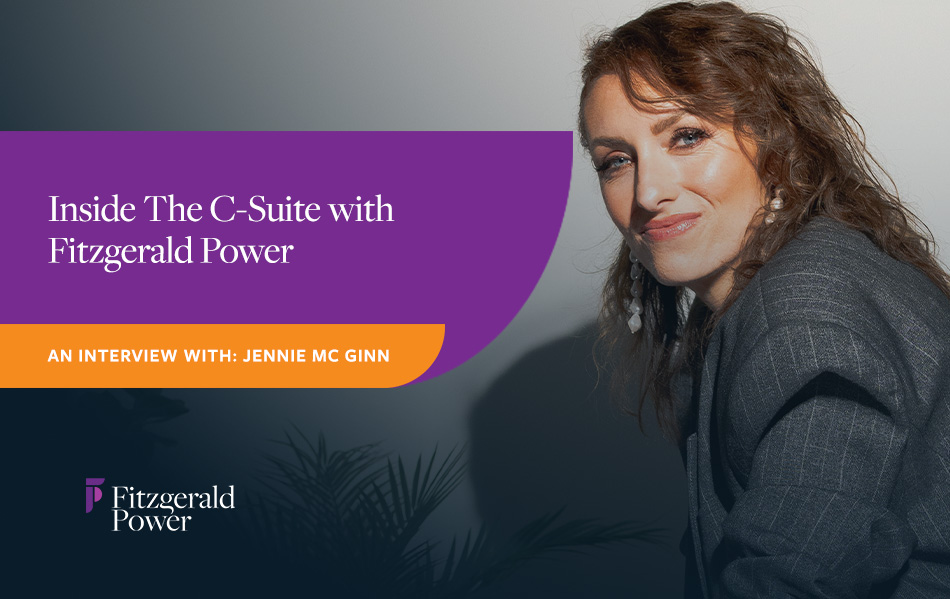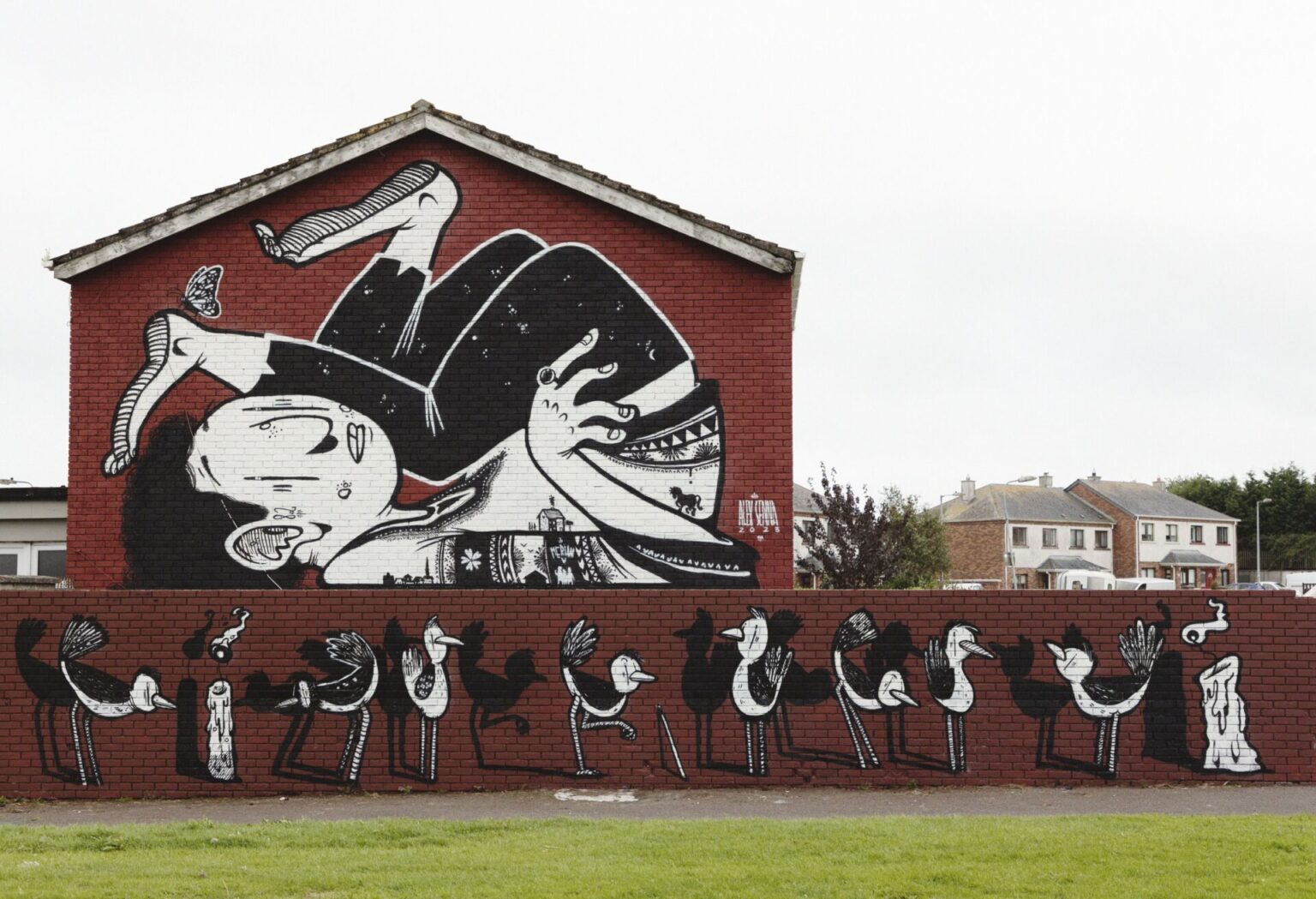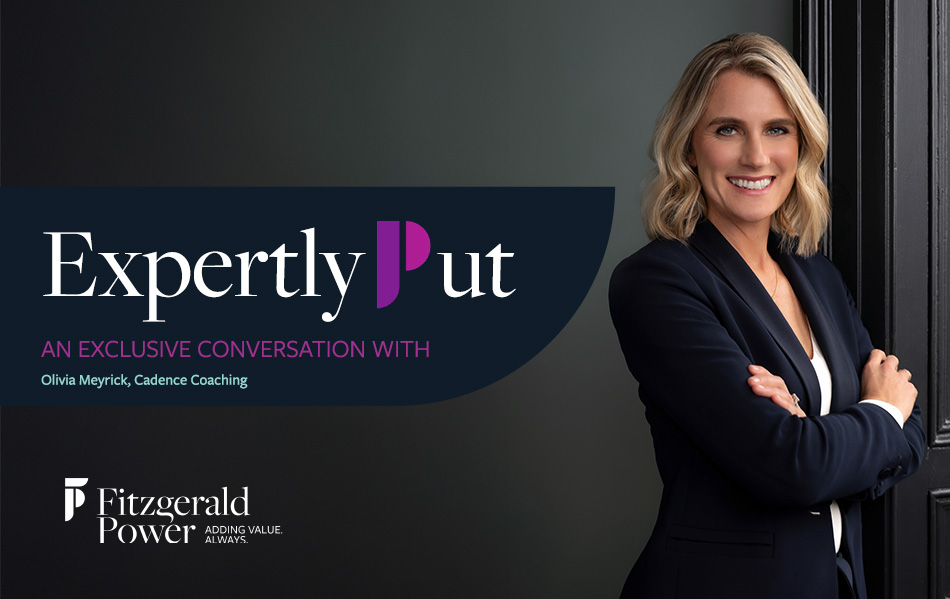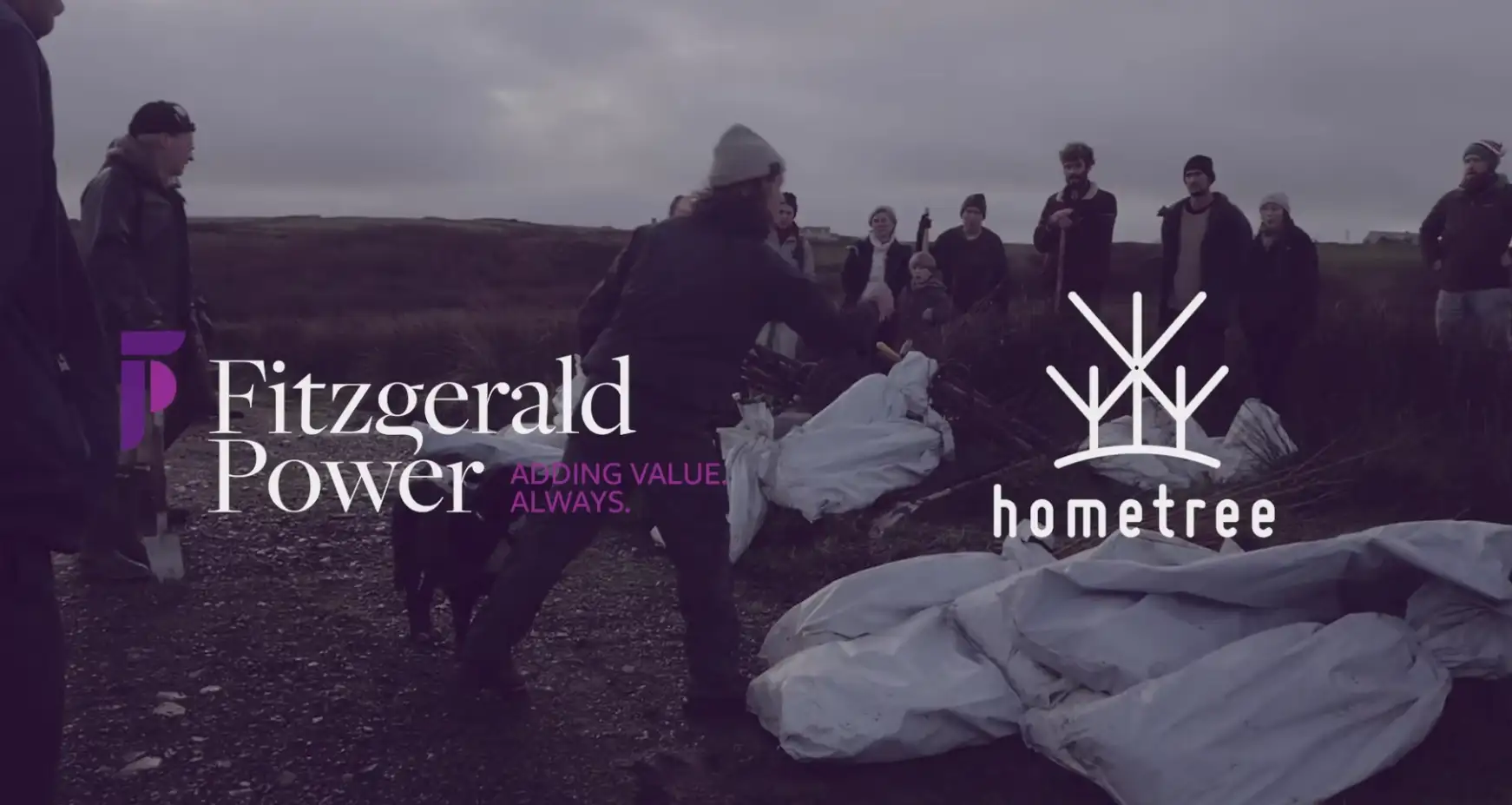“Personal branding is the new CV.”
In Fitzgerald Power’s interview series, we’re speaking to people with different perspectives who feel they can offer more to the workplace – from the water cooler all the way up to C-Suite.
The idea of building a personal brand can often feel like a game designed for a certain kind of person. The advice is always the same: post incessantly, share it all, network everywhere and be everywhere at once. For most, this rightfully sounds exhausting. And, without a clear goal, it is.
But what is one to do when they don’t know where to start? What is a personal brand anyway – and why should anyone care about one? “I feel the personal brand concept has been a little bit co-opted by the tech bros,” speaker, consultant and business amplifier Jennie McGinn says. “And as a result, people have been given the wrong impression. First of all, it’s not about being an influencer. It’s not about having thousands of followers on different social media platforms. And it’s also not a hack to get a job you don’t have the qualifications to back up. For me, personal branding is the process of understanding what you’re really, really good at and communicating that repeatedly. Then, the end goal is to either acquire a job or progress in your career or industry. It can also be a security blanket that can give you an exit plan for when you’re about to sell a company or pivot your career. At the moment, the job market feels a bit wibbly-wobbly, and if you have been building your personal brand consistently in the background, it gives you an edge if something happens unexpectedly.”
McGinn is insistent that, even unbeknownst to ourselves, we all have personal brands in the modern age. “This is another misconception,” she smiles. “Everybody has a personal brand because we live in a digital age. The personal brand process is taking control of that and owning your own narrative. It’s very easy to find out information about you, so instead of ignoring that, carving out a personal brand is taking control. I think people get really scared of this concept, especially in Ireland, but I want to repeat again: it’s absolutely not about being an influencer. Yes, it might be about demonstrating influence at some stage, because of your knowledge and skills, but the goal is not to become an influencer. It’s simply taking what is already out there about yourself, and either adding to it, curating it or carving out what you want people to know.”
Personal branding is something McGinn knows about acutely. She describes herself as “the ultimate portfolio careerist,” a recognition of the myriad roles she’s committed to to date, founder, brand strategist, consultant and writer, among them. For those not in the know, McGinn’s background is largely entrepreneurial; you might remember her first venture, Opsh, formerly Prowlster, the 2010s darling of e-commerce she founded with her sisters. Opsh was a disruptive site that allowed consumers to shop the high street by using one account and payment method. The concept, which caught the eye of Brett Palos, then director of the Arcadia Group and Philip Green’s stepson, among others, was revolutionary at a time when e-commerce was just that bit too early to really thrive. She learned “everything” from that time, including the art of standing out in a saturated field.
This will make sense to anyone who’s met McGinn. Maximalism is in her bones – leopard print, wide-circumferenced hoop earrings and bold colours are her calling cards – but as a woman working in oftentimes male-centric arenas, she knows what it’s like to feel overshadowed, overwhelmed and underappreciated. How did she learn how to take back control, you ask? Personal branding. “I think it’s actually essential to build your personal brand now,” she says. “I think maybe before, like five years ago, it was a bit of a luxury. It was a bit of a novelty. And maybe it was kind of the preserve of people in the media and influencing. But now, I think it’s essential. It is the new CV. Particularly now that ChatGPT is deeming CVs irrelevant. If everyone is writing theirs using AI, and thus they’re all exceptional, what sets the people behind them apart? Personal branding.”
In 2023, McGinn founded Sister The Agency: an ecommerce, branding and social media agency. Alongside this under her own brand name Jennie McGinn, she also gives talks and workshops on topics such as building a personal brand online, utilising social media to stand out and how professionals can highlight their best qualities through the clothes they wear. Her work centres on pushing people, particularly women, to step into the role they’ve often dreamt of in private. Personal branding is something that, naturally, regularly comes up, meaning teething pains are plenty. “It does take a little bit of a while to understand,” she says. “Especially if you’re not very comfortable putting yourself out there. But one of the first mistakes I see, and especially in the corporate world, is posting about something without your own point of view. You might commit to yourself to post twice a month on LinkedIn, maybe through ChatGPT, but if that lacks your point of view, your personality or your thoughts, it won’t stand out. I could read the synopsis of the point you’re talking about anywhere – I want to hear your take, because that is something I’ll keep coming back for.” Personality sets people apart, McGinn says. “Nobody has taken the steps that you have to get to where you are,” she says. “That is your IP, and it is so valuable, and you need to own it and embrace it.”
The second most important thing? Consistency. “Platforms expect consistency,” she says. “Online audiences expect consistency. Because if you’re not at the top of people’s minds, you’re forgotten. That doesn’t mean you have to go in all guns blazing and be active on every single platform, or put your name forward for everything. You can do one thing, as long as you do it consistently. It gets a little easier, I find, when you realise that this version of yourself that you’re putting out there is a commodity, it’s a product. People can feel uncomfortable about that, but understanding that this is what that product needs to do can help.”
The final realisations one must come to in this game, according to McGinn, are patience and realism. “You should not expect something to happen overnight,” she smiles. “Or in three months or six months. Overnight success is not the aim; this is the long game. It is a habit, a process. It is something that you need to do in tandem with your job and work, whatever that is. Otherwise, you’re just creating content for the sake of it, and you are just cluttering up people’s feeds with irrelevant noise.”
If the idea of sharing your life with strangers still worries you, fret not. Curating a personal brand doesn’t mean sharing a public diary. The world doesn’t need to know what you had for breakfast, your dirty laundry or your relationship status. It’s fine to separate professional value from personal exposure. “Ultimately, it is a personal decision,” McGinn says. “There’s no one-size-fits-all. Even in the corporate world, there has been a shift in seeing CEOs taking the warts-and-all approach, which is quite a pendulum swing from pure corporate talk. So for me, that says there’s range to do everything. Personally, however, I think it’s really important to ask yourself some questions about boundaries before you start: What do I want to talk about? What do I want to be known for? What is my mission? What are my values, my goals? And then what are my red lines: What do I not want to be known for? What do I not want to be asked? etc. Then you’ll know how comfortable you are with sharing personal stuff instinctively. That said, for those who are, there are ways to do it in a really insightful, aligned way. Take Platform 55, a company founded by Michelle O’Keefe and Tracy Gunn, whose whole focus is on redressing the work environment to be more equitable for working parents. They’re an excellent insight into how personal you can be on the more corporate channels, without diluting your point.” In that way, and others, the sky is the limit for those who want to venture out of their already existing personal brand that lives on the internet. “Just don’t talk about how brilliant you are right away,” she smiles. “Let people glean that from your output themselves.”





